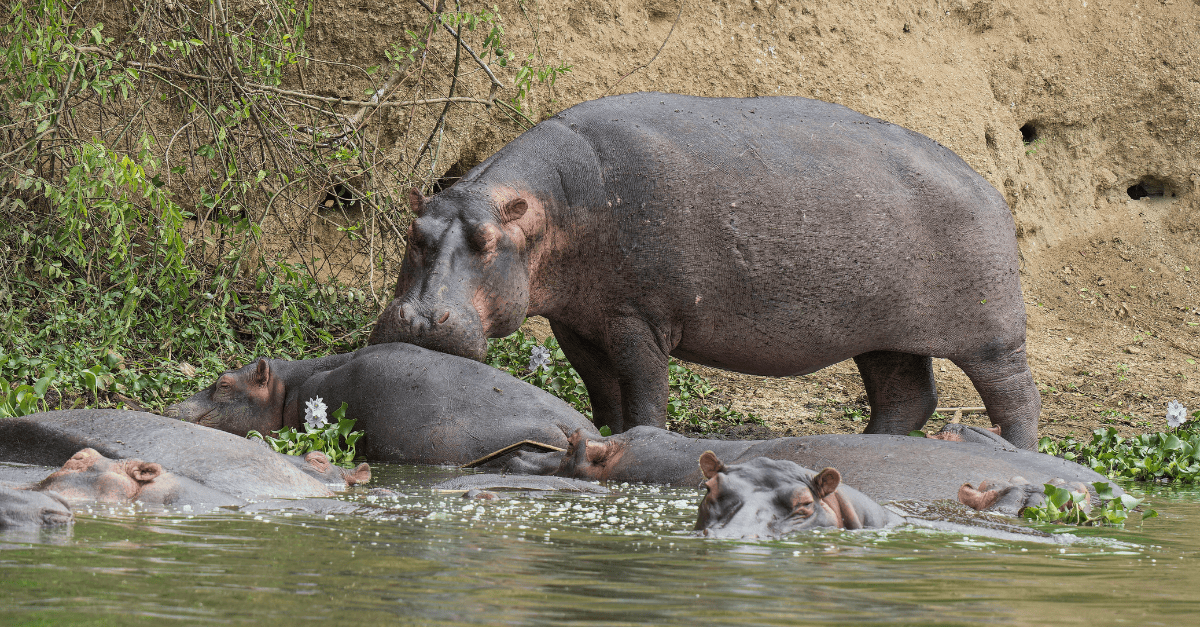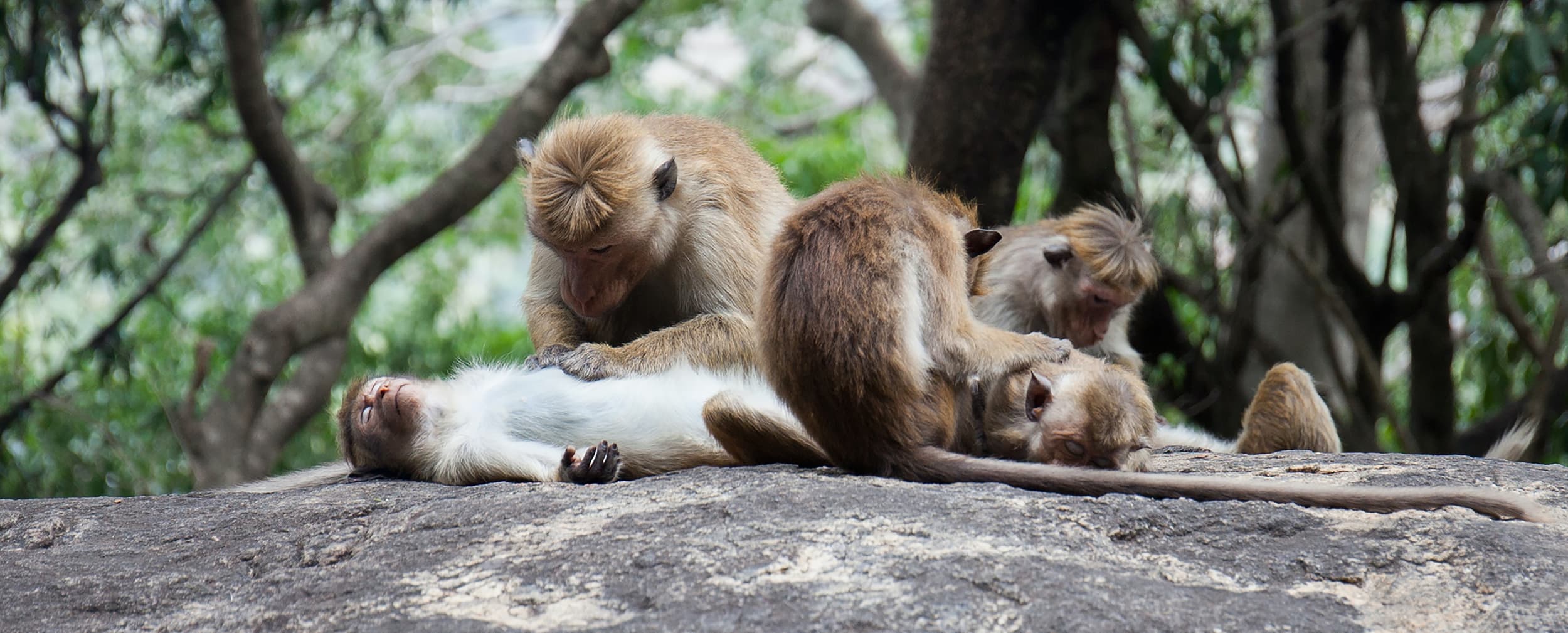This year’s High-Level Political Forum (HLPF) at the United Nations in New York was a chance to effectively advocate for animals globally and advance our continuous learning to refine our strategies and collective ability to integrate animal welfare into sustainable development policy.
For our seasoned and experienced advocates at the UN, this year was part of an ongoing series of international meetings to review and encourage sustainable development, in which animals need to be increasingly recognised.
For others, this year was an introduction to the HLPF. As a sector, we are relatively new to UN processes, despite their importance for legislation, businesses, and people worldwide. This year saw some burgeoning engagement from new animal advocates who see the need to increase the place of animals in international policy and its impacts.
The UN has enormous potential to make a better world, and this year pressed home the need for fundamental change to achieve a sustainable and humane world. Transforming how we treat animals is a vital part of that change, and we were a prominent part of the dialogue, from events to interventions in the HLPF itself, setting us up for future advocacy in the lead to 2030.
Progress and pandemics
Overall, this year’s HLPF could not avoid leaving attendees with a real feeling of concern, for two primary reasons.
First, we are nowhere near achieving the SDGs, with only a small minority on track. This was noted repeatedly, with prominent voices calling for a new ambition to get us back on track and fundamentally change what has held us back.
We are not on track to achieve the SDGs partly because of the attitudes and structures that lock us into current practices – from current consumption levels to commercial production standards. Many people and organisations are trying to achieve a transition to a better world. Still, our efforts are hampered by the inertia of business as usual, the resources and strength of dominant industry lobbyists and associations, and global competition and nationalism.
Second, despite the pandemic’s massive negative impact on achieving the SDGs, it was evident from the dialogues at the HLPF that there is little political will or ambition to address the root causes that led to the pandemic itself.
Attendees repeatedly noted that we are not on track because of the pandemic’s impact, which further slowed development across the economic, social, and environmental pillars. This is especially disheartening for animal protection organizations. At the 2019 HLPF, animal protection organisations explicitly warned that our use of animals was setting the world on track to experience a global pandemic. Sadly, less than six months after this warning, COVID-19 had emerged, likely due to our (mis)treatment of wild animals.
The exploitation of animals has therefore had a clear and disastrous global impact. It has led to millions of people’s deaths and stalled global sustainable development. Without taking steps to transform our relationship with animals and the planet, the next pandemic will do the same. Governments perhaps recognised this in including, after our advocacy, wildlife protection in the draft Political Declaration, expected to be agreed upon at the SDG Summit in September. There was also a glimmer of hope as, after significant lobbying, negotiators included One Health in a penultimate draft of the Declaration. However, without explanation and after closed-door consultations, One Health was removed from the draft provided to the President of the General Assembly for finalisation.
We, the peoples
Despite these disappointments, the UN provides an opportunity, perhaps the only opportunity, for the inspiration, cooperation, and symbiosis that might save us. At first, entering the UN HQ in New York, one gets a strong impression of the vital spirit and promise that underlie its purpose, as a hive of people comes together across the world.
One is also reminded of the promise of an international body that aims to rise above the self-interest of its members to make the planet a better and safer place for all. At the same time, the human artefacts of nuclear disaster and the images of doves and lambs, representing peace, remind visitors of the scourge of war the UN was founded to guard against.
The UN aims further still to: promote social progress and better standards of life; expand human freedom and rights; establish a global culture of tolerance; live together in peace as good neighbours; and save succeeding generations from scourges beyond war, not least famine, disease, and poverty.
In this, the UN aims to move beyond what is good for any one person to consider what is good for the global community. Many of us within civil society and governments believe in the potential for international collaboration to safeguard our future and the future of our children, planet, and animal neighbours.
Listening to the debates and talking to delegates also helped to get a feel for the cognitive attitudes (and the cognitive dissonance) involved. Many delegates, not least the inspiring representative from the Mexico mission who spoke at our side event, are working to change the world and are open to new ideas. Many can see both the need for progress and the risks of the outdated consumerist model, providing a balanced view of our current sustainable development challenges.
We, the planet
So one is left with the feel of an organization with massive potential, awesome purpose, and inspiring individuals, but which is limited by the self-interests embedded by nationalistic and anthropocentric narratives and structures. Member States, like civil society, are limited in their ability to progress unless the world moves to a better approach. With current geopolitics (and national politics), this might get worse before it gets better.
However, animal protection organisations are truly joining the global effort to build a better future for all, knowing that transforming our treatment of animals is an essential part of a better world, a sine qua non for sustainable development, and a key accelerator for our transition to the future we want.
As civil society attendees, we are not only passive observers of the UN animal. We are a vibrant part of the dialogue: moderating a side event on the importance of animal welfare for sustainable development, supporting the Animals Issues Thematic Cluster exhibition, facilitating a dialogue with scientists on the Global Sustainable Development Report, speaking on behalf of all NGOs worldwide at an official session of the HLPF, and along the way connecting and dialoguing with delegates and stakeholder representatives from youth, women, academics, farmers and other representatives across all of civil society.
It is such active involvement – and the positive responses from many – that leaves one with more hope for the future. We, the peoples, can break out of the current mould. We can evolve our approach to avoid the dead-ends and traps that our current development models bring. We can and will create the future we want for all who share our planet.





